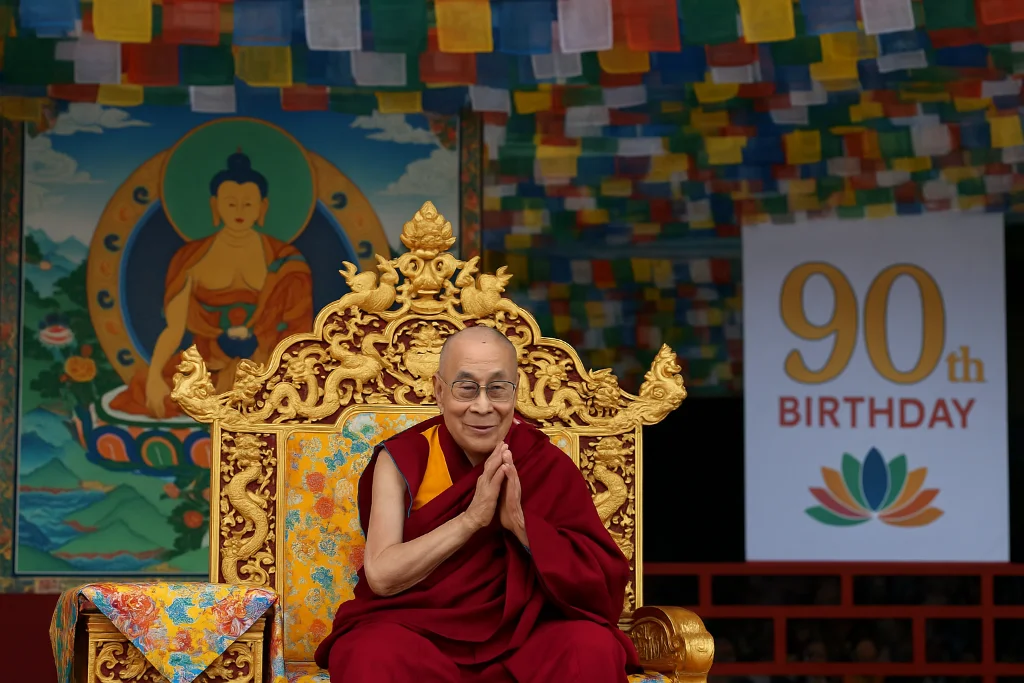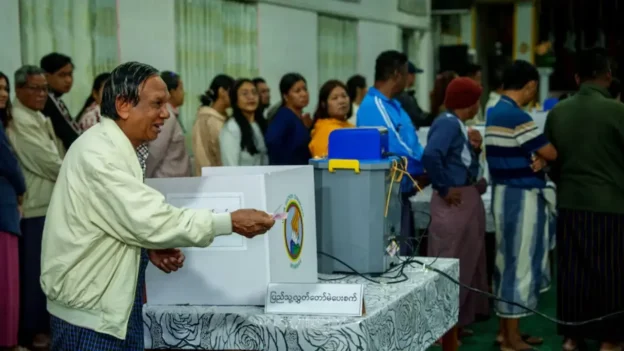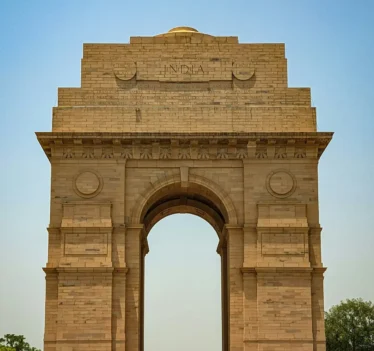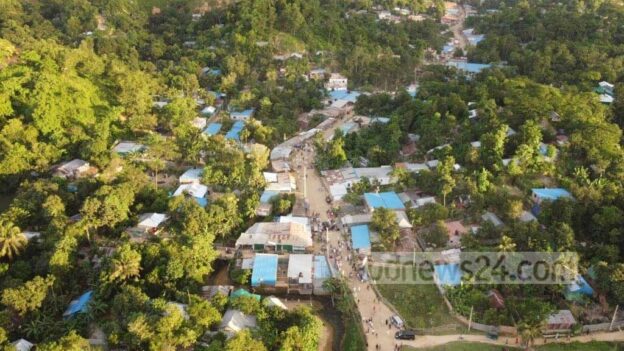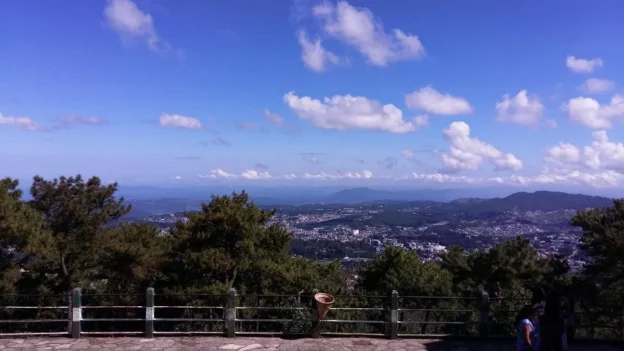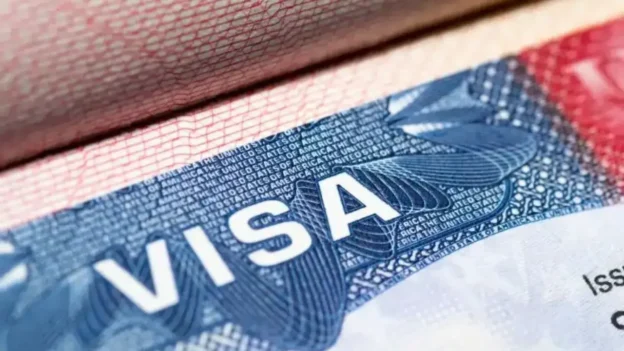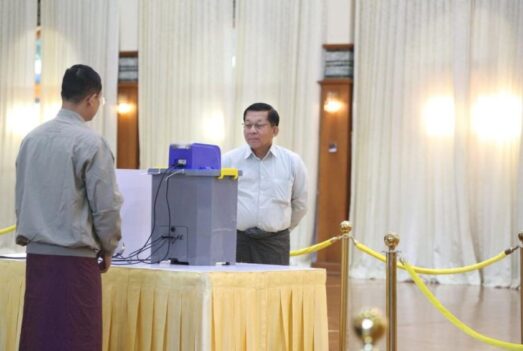All eyes are on Dharamshala as the hill town prepares for a landmark event—the 90th birthday of the 14th Dalai Lama. As preparations reach their peak, curiosity about the possibility of an announcement on his reincarnation has taken on a life of its own, capturing not only the Tibetan diaspora but also drawing global attention. The world is watching to see whether this milestone celebration will also bring clarity on the future of Tibetan spiritual leadership.
This year, the birthday celebrations hold special significance because, as Buddhist scholar Thupten Kalden of New Delhi explains, according to the Tibetan Buddhist calendar, the Dalai Lama was born on the fifth day of the fifth month—which in 2025 falls on June 30. As a result, his 90th birthday is being marked on two days: June 30 in line with the traditional calendar, and July 6 according to the Western calendar. Kalden adds that the celebrations have become a tradition since the Dalai Lama’s 80th birthday, when—with his trademark humour—the spiritual leader remarked that similar festivities might be called for when he turned 90.
Although the Dalai Lama has, over the years, addressed the topic of reincarnation in speeches and statements—most notably in 2011—he has offered little that is concrete, often treating the subject with wit and lightness. This openness has only deepened public interest, with interpretations and speculation multiplying in the absence of any clear pronouncement.
The celebrations this year are therefore not only a reflection of the reverence the Tibetan community and the world hold for the Dalai Lama, but also a moment of heightened anticipation as his future—and that of the institution he embodies—hangs in the balance.
The birthday festivities, which have taken on a new dimension since his 80th year, were humorously predicted by the Dalai Lama himself. “There is a tradition that when somebody reaches the age of 80 there is a big celebration,” says Thupten Kalden, a Buddhist scholar based in New Delhi. “He once joked that maybe when he turns 90, people will want another celebration.” This year, the Central Tibetan Administration has declared the 90th birthday a “golden year,” extending the celebrations across an entire year.
Yet, the sense of anticipation is not only about the milestone. Many are watching for signals on the long-debated issue of the Dalai Lama’s reincarnation. As Tsewang Dorji, a Buddhist scholar and representative of the Tibet Policy Institute, notes, “There are various interpretations—a kind of ‘masala’—about what the real statement is all about.” He points to concerns about vested interests misrepresenting the Dalai Lama’s words, recalling the statement made by the spiritual leader in 2011, where he referred to the first Dalai Lama, Gendun Drupa, who lived to an advanced age.
“He said very precisely that as long as he gets the first Dalai Lama’s age he will say something,” Dorji explains. “You can check how long the first Dalai Lama lived, then you will understand actually.” Dorji agrees that the 90th birthday, as a number, is very special, and this year’s festivities are infused with hope and speculation.
The Dalai Lamas have served as both the spiritual and political leaders of Tibet for nearly four centuries, since 1642. The current Dalai Lama, Tenzin Gyatso, relinquished his political authority to the democratically elected Tibetan leadership in May 2011, a pivotal moment that shaped subsequent debates about reincarnation. In his influential 2011 statement, he made clear that, as early as 1969, he had expressed the view that “concerned people should decide whether the Dalai Lama’s reincarnations should continue in the future.”
He also cautioned, however, that in the absence of clear guidelines, there was “an obvious risk of vested political interests misusing the reincarnation system to fulfil their own political agenda.” “Therefore, while I remain physically and mentally fit, it seems important to me that we draw up clear guidelines to recognise the next Dalai Lama, so that there is no room for doubt or deception,” he added.
This has not eased concerns over potential manipulation. Over the centuries, the process of identifying reincarnate lamas has become a unique Tibetan tradition, central to both religious life and national identity. Since the 15th century, the Gaden Phodrang Labrang—the Dalai Lama’s institution—has maintained a continuous line of reincarnations, with the Third Dalai Lama, Sonam Gyatso, being the first to formally bear the title. The Fifth Dalai Lama, Ngawang Lobsang Gyatso, consolidated both spiritual and temporal power, establishing the Gaden Phodrang Government in 1642. For more than 600 years, this lineage has been recognized by a series of unmistakable reincarnations, each selected through a system respected within Tibetan Buddhism.
But now, the uncertainty is compounded by external factors. One of the greatest sources of anxiety is the role of China. Srikanth Kondapalli, a Chinese affairs expert at Jawaharlal Nehru University, notes in an article published by the Deccan Herald that China, which ‘liberated’ Tibet in 1951 through military intervention, has made clear its intention to control the process of selecting the next Dalai Lama. The Chinese government insists on a “golden urn” lottery process, a mechanism designed to assert political control.
“Beijing hopes to create confusion among Tibetans over the reincarnation of the Dalai Lama,” Kondapalli says in the article, noting that a similar strategy was used in the case of the Panchen Lama, the second highest lama in Tibetan Buddhism. In 1995, when the Dalai Lama recognized Gedhun Choekyi Nyima as the 11th Panchen Lama, Chinese authorities placed him under house arrest and appointed Gyaltsen Norbu to the position through the “golden urn” process. According to Kondapalli, today, Gyaltsen Norbu holds high-ranking political positions in China and is actively involved in the Communist Party’s religious affairs. The fate of the Dalai Lama’s reincarnation, many fear, could be similarly manipulated.
The Dalai Lama himself has addressed these concerns directly. In his 2011 statement, he pointed out Beijing’s strategy: “They are waiting for my death and will recognize a Fifteenth Dalai Lama of their choice. It is clear from their recent rules and regulations and subsequent declarations that they have a detailed strategy to deceive Tibetans, followers of the Tibetan Buddhist tradition and the world community.”
In his statement he further remarked on the long-standing involvement of Chinese rulers in religious affairs, using Buddhism as a political tool. “Today, the authoritarian rulers of the People’s Republic of China, who as communists reject religion but still involve themselves in religious affairs, have imposed a so-called re-education campaign and declared the so-called Order No. Five, concerning the control and recognition of reincarnations, which came into force on 1st September 2007. This is outrageous and disgraceful.” He believes these interventions threaten to undermine the unique traditions of Tibetan Buddhism, causing damage that may be difficult to repair.
With so much at stake, this year’s 90th birthday celebrations have taken on a new dimension. According to Kalden, all the heads of the four major sects of Tibetan Buddhism that is, Nyingma, Sakya, Kagyu and Geluk—over whom the Dalai Lama presides—will meet in Dharamshala starting June 30 to discuss the question of reincarnation. “Many people are expecting that this discussion may come up during that sitting,” Kalden says. “After this meeting the picture will be clear.”
Kalden recalls that a similar meeting was attempted in 2016 or 2017, when the Dalai Lama deflected the issue with humour: “Look at my face—is it important for discussing this?” The meeting ended without resolution. This time, however, expectations are higher. “His Holiness may not say the same word. Maybe we are expecting something, maybe they will disclose something but may not disclose 100 percent,” Kalden suggests.
The gathering, it is reported, will be limited to religious heads and the Tibetan government in exile—the Central Tibetan Administration, established by the Dalai Lama himself. “No political groups, no NGOs, nobody else will sit—that’s what I heard,” Kalden adds. The government in exile will likely play a key role in shaping the outcome of these historic discussions.
As celebrations unfold in Dharamshala and around the world, the question of the Dalai Lama’s reincarnation remains open. What is clear is that, for Tibetans and the global Buddhist community, the 90th birthday of the 14th Dalai Lama is not only a celebration of a remarkable life, but also a pivotal moment in the story of Tibetan Buddhism—one that will shape the future for generations to come.

